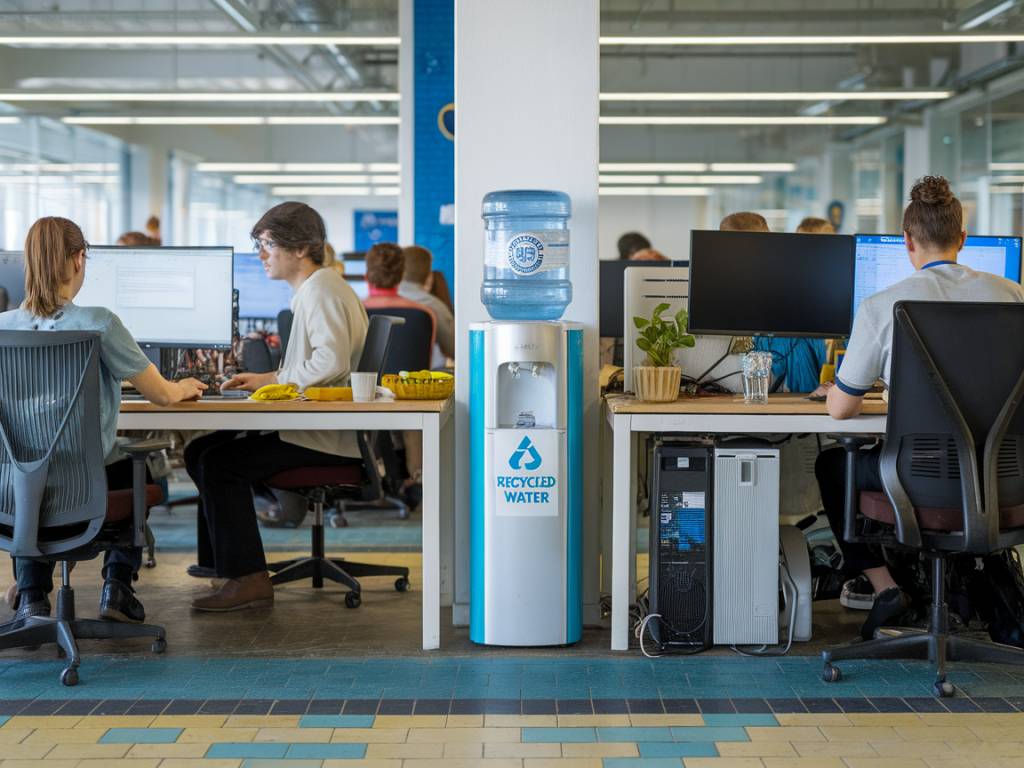In today’s workplace environment, the emphasis on sustainability and health goes hand in hand. As industries strive to minimize their carbon footprints and promote employee wellness, the concept of using recycled water in the workplace emerges as a notable solution with multifaceted benefits. But what exactly does utilizing recycled water entail, and why should businesses consider its integration? Let’s delve deeper into the advantages of incorporating recycled water into your workplace health strategies.
Understanding Recycled Water: A Simple Primer
Recycled water, often referred to as reclaimed water, is treated wastewater that is purified to remove solids and impurities, making it suitable for specific uses. Unlike potable water, which meets high health standards for drinking, recycled water is predominantly used for irrigation, industrial processes, and sometimes even toilet flushing. It’s an innovative approach that encourages a sustainable use of our water resources, marking a shift towards more environmentally-conscious water management practices.
The Health Benefits in a Workplace Setting
Integrating recycled water into the workplace is not just an environmental triumph; it also offers tangible health benefits for employees. Here’s how:
- Reduced Exposure to Contaminants: With rigorous treatment processes, recycled water is filtered to significantly minimize contaminants, resulting in cleaner water for non-potable uses. This contributes to a healthier working environment.
- Enhanced Humidity Levels: Many modern workplaces suffer from low humidity, particularly in air-conditioned spaces. Using recycled water for plant irrigation can help maintain optimal humidity levels, aiding respiratory health and skin moisture retention.
- Encouragement of Green Spaces: Recycled water supports the growth of indoor and outdoor plants, creating green spaces that enhance air quality and promote mental well-being, contributing to a more vibrant and calming workplace atmosphere.
Economic and Environmental Impact
The benefits of using recycled water extend beyond health; they impact the economic and environmental aspects of workplace management:
- Cost Savings: Employing recycled water can reduce water bills significantly, especially in large office complexes or industries with high water usage. It’s a cost-efficient alternative that aligns with sustainable business practices.
- Water Conservation: By reusing water, companies contribute to conserving a vital resource, which is particularly necessary in regions prone to drought or with limited water availability.
- Corporate Social Responsibility: Adopting recycled water systems can enhance a company’s image by demonstrating commitment to sustainable and responsible business operations.
Navigating the Switch: Practical Considerations
Adopting recycled water involves thoughtful planning and management. Some factors to consider include:
- System Installation: Implementing a recycled water system might require initial investments in infrastructure, depending on the building’s current plumbing setup. However, the long-term savings often outweigh these costs.
- Regulatory Compliance: It’s essential to ensure that the use of recycled water complies with local regulations and standards, which vary widely based on location and intended use.
- Employee Education: Just as with any workplace innovation, it’s vital to educate employees on the safe use of recycled water to ensure its efficient and correct application.
Real-World Success Stories
Several companies across diverse sectors have successfully integrated recycled water into their operations, yielding enlightening results and illustrating its potential:
- The Tech Giant: A leading technology company implemented a recycled water system for its landscaping and cooling towers. This change reduced water consumption by 40% per annum, reflecting significant environmental and financial savings.
- Educational Institutions: Universities with sprawling campuses have pioneered recycling water for irrigation, maintaining beautiful greenery while educating students on sustainability.
Final Thoughts: Transforming the Workplace
The integration of recycled water in workplace health practices not only contributes to a healthier environment but also plays a crucial role in sustainable business operations. By embracing such innovative solutions, companies can foster a culture of responsibility and wellness, offering tangible benefits that extend beyond the immediate office space. The shift towards using recycled water isn’t merely a trend; it’s a step towards a more sustainable and health-conscious future, ripe with opportunities for growth, efficiency, and positive impact.






More Stories
Corporate wellness programs: how to integrate health monitoring devices?
What corporate health technologies can boost employee well-being?
How can companies ensure safe drinking water for employees?